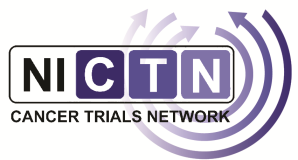The staff of NICTN are deeply saddened by the sudden and untimely death of Professor Patrick (Paddy) Johnston on 4 June 2017. Professor Johnston, President and Vice-Chancellor of Queen’s University Belfast, provided unparalleled vision and leadership in cancer research in Northern Ireland. His work has received national and international recognition.
After he took up the post of Professor and Head of the Department of Oncology, QUB, in 1996, Paddy was the driving force behind the establishment of the NI Cancer Clinical Trials Unit in 1999, which became the current NICTN. He also led on the grant to establish the Belfast Experimental Cancer Medicine Centre. He was instrumental in the development of the US National Cancer Institute/All-Ireland Cancer Consortium and supported international collaboration, including specific training programmes in cancer clinical trials, which benefited a great number of staff, researchers and patients.
He was a tireless advocate for the development of the NI Cancer Centre, which opened in 2006, and he established the Centre for Cancer Research and Cell Biology in QUB, which opened in 2007, creating a comprehensive cancer centre model in Belfast, for which he received the Queen’s Diamond Jubilee Anniversary Award in 2012. Paddy was a member of many national and international research committees and bodies. His own research programme was in the field of bowel cancer and emphasised translational research.
Throughout Paddy’s clinical and academic life he promoted excellence, a patient/carer focus, teamwork, multi-professional working, education, collaboration and relationships across all sectors and boundaries, to the benefit of patients and the wider society. NICTN are indebted to his dynamic and inspirational leadership and his ceaseless striving for clinical and translational research to be embedded as an integral component of healthcare. Our deepest sympathies go to his wife Iseult and his family. The greatest tribute that we can offer him is to further his vision and legacy by continuing to promote and deliver excellence in clinical and translational cancer research.





